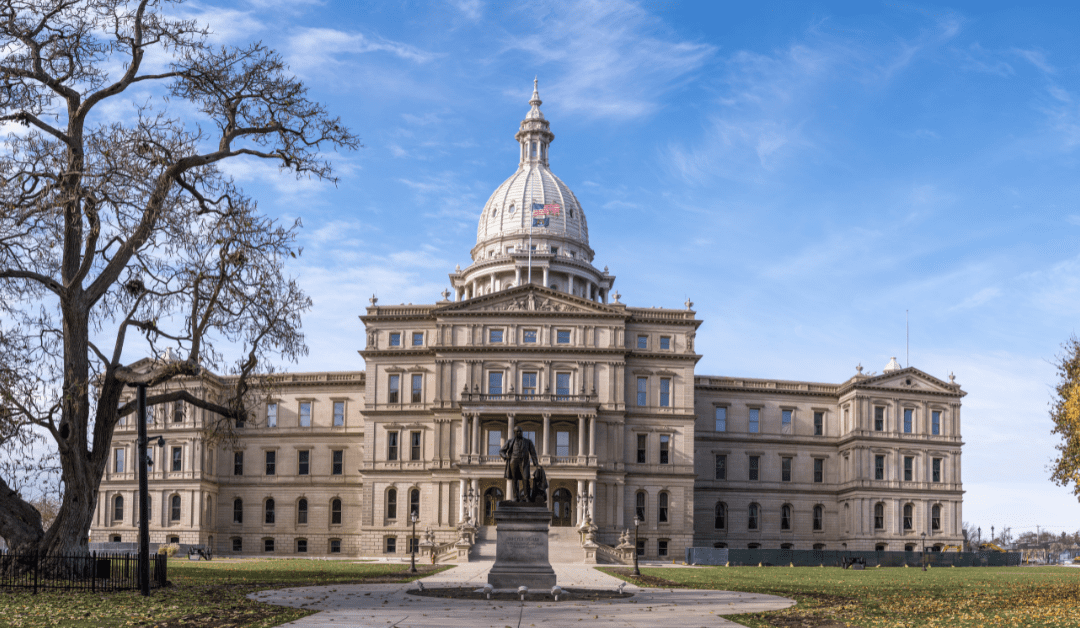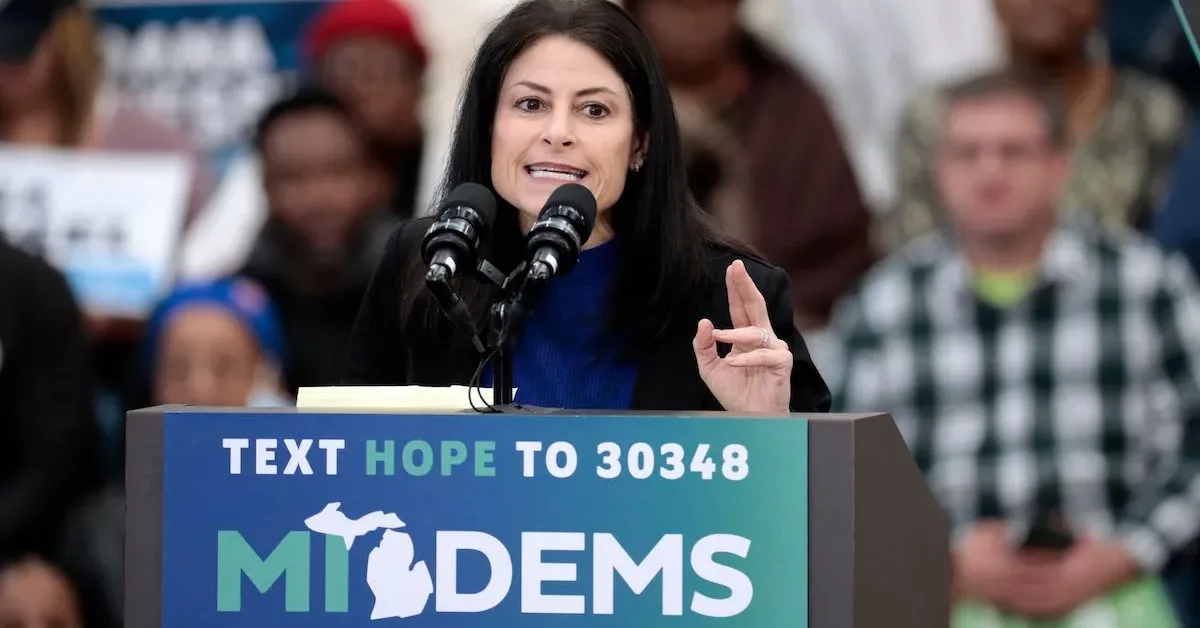
President Joe Biden signed the American Rescue Plan Act in 2021. More than three years later, the legislation is still paying dividends for Black-owned businesses in Michigan.
LANSING—Nikki Thompson Frazier knows that being a Black business owner isn’t easy.
Study after study (after study) has shown that Black business owners, compared to their white counterparts, have a much more difficult time accessing basic loans to support their businesses—and must often rely on credit cards to finance their entrepreneurial pursuits.
That trend is tied to long-standing barriers to bank loans and institutional capital. But research also shows the economic inequities are a result of generations of inherited wealth gaps.
As the first-generation owner of Sweet Encounter Bakery & Cafe in Lansing, where only about one in five businesses are owned by Black people, Thompson Frazier said that she has been dealing with the impact of those racial disparities since she opened her bakery in 2022.
“We just don’t have access to the same capital,” she said. “Other business owners are multi-generational. They’ve been doing this for a while. They know the system. They may have friends or family or other people in their community that can help them. And with us, we don’t have as much access to that because many of us are first-generation business owners.”
Federal data shows the median net worth of white families in 2023 was about $285,000—more than six times that of the average Black family, which tracked an average net worth of $44,900.

That disparity has naturally translated to business ownership, which is heavily influenced by family wealth. As of last year, Black people only own about 3% of the businesses (with more than one employee) in the US, despite comprising about 14% of the country’s population.
In recent years, targeted investments from President Joe Biden’s administration have aimed to address those racial disparities and level the playing field for minority-owned businesses.
And in Lansing, economic development officials are still putting that federal funding to work.
‘A foundational approach’
Statistics show that only about 15% of the small businesses in Greater Lansing are owned by minorities. In 2021, Lansing Mayor Andy Schor’s administration sought to address the problem—namely by providing Black-owned business owners with some targeted support.
Last year, those efforts evolved into the creation of a six-month program called Lansing Empower, where local Black-owned business owners could enroll in free training sessions with consultants and other specialists about ways to break barriers and grow their businesses.
Participants received a crash course in just about everything there is to know about business strategy—including marketing and establishing systems to scale their operations.
And this month, the program announced the inaugural cohort of its first 10 graduates—which includes Thompson Frazier, the owner of Sweet Encounter Bakery & Cafe in Lansing.
“As a first-generation business owner, you do need a little bit more support and guidance because you don’t have that history to fall back on, or the people with the history and the knowledge to fall back on,” she said. “This program really gives you a foundational approach.”
Thompson Frazier said the most valuable parts of the training program were one-on-one sessions with a business coach, as well as some extra technical support from a social media marketing expert who helped her with new ways to promote her baked goods on Facebook.
“It was really about giving us tools—like building blocks that we need starting from the beginning,” she said. “It really touched on all aspects of business, which I think is so key.”

Justin Christian, the owner of Top Shelf Party Rental in Lansing, compared the program to a college business course. But beyond learning some particularly valuable lessons about branding, he said the Lansing Empower program offered him an opportunity to connect with other Greater Lansing businesses, share collective problems, and seek solutions.
“We definitely needed this program. We need more like it, too,” Christian told The ‘Gander. “A diverse economy is important. We all need to help these small businesses get down the road.”
Aurelius Christian, who coordinates the program for the Lansing Economic Development Corporation, said having a small class of 10 business owners in the first year of the program allowed for “very intimate” conversations about disparities in the local economic landscape.
He also cited the American Rescue Plan Act as a driving force in making the program possible—and said officials at the Lansing Economic Development Corporation have already committed to ensuring the program remains available for local entrepreneurs in perpetuity.
“When you think of why people desire to venture to America and pursue opportunities, it’s because it’s the land of opportunity,” Christian said. “And so being able to intentionally resource folks with knowledge, intentionally resource folks with access to capital that have historically faced barriers in those regards, I think that’s just fulfilling what America really represents.”
‘The difference is stark’
With less than eight months until Election Day, the Biden campaign has reportedly been “working to ensure that Black Michiganders are aware of all the promises made and kept by” Biden, senior campaign adviser Eddie McDonald told the Associated Press last month. He said the campaign is “not taking a single voter for granted—especially when the stakes are this high.”
“The fundamental choice in this election is between Joe Biden, who is fighting to make life better for Black voters, and Donald Trump, who drove up Black unemployment, tried to rip away health care access, and attempted to slash funding for historically black colleges and universities,” McDonald said. “That difference is stark and we’re going to make sure Michiganders know it.”

Since Biden took office, a record $70 billion in federal contracts have been awarded to small, disadvantaged businesses, according to statistics from the White House. Another $12 billion investment in community lending will expand access to capital and resources for entrepreneurs.
The president’s strategy, paired with investments from federal legislation, appears to be working. A recent Federal Reserve survey shows that wealth for the average Black family climbed 61% between 2019 and 2022. Black unemployment rates are also at historic lows.
White House officials have also cited stimulus checks, expanded child tax credits, and federal investments in infrastructure and manufacturing have also worked to reduce poverty and give families an “additional cushion” that enables them to “take a chance and start a new business.”
Statistics provided by Gov. Gretchen Whitmer’s office also show that an estimated $73 million in federal highway projects funds provided to Michigan have been spent at minority- and women-owned businesses—including at least $10 million at Black-owned businesses.
Whitmer has also touted recent federal and state investments in childcare, education, apprenticeships, and manufacturing as ways in which the government is “delivering for the Black community.” Since taking office, Whitmer has also signed bills to reopen Michigan’s only historically Black college and formed the Black Leadership Advisory Council to curb inequities.
READ MORE: Three years later: What is the American Rescue Plan doing for Michigan?
For the latest Michigan news, follow The ‘Gander on Twitter.
Follow Political Correspondent Kyle Kaminski here.
Politics

Slotkin urges Michiganders to compare prices before buying prescription drugs
A law sponsored by Congresswoman Elissa Slotkin is helping patients compare prices for different prescription drugs at different pharmacies—saving...

‘Melody’s Law’ would explicitly criminalize necrophilia in Michigan
BY ANNA LIZ NICHOLS, MICHIGAN ADVANCE MICHIGAN—There is no law on the books in Michigan that expressly criminalizes engaging in sexual conduct with...

SEIU workers ahead of NFL Draft: We are ‘the backbone of Detroit’
BY KEN COLEMAN, MICHIGAN ADVANCE MICHIGAN—A day ahead of the National Football League annual draft being held in Detroit, Service Employees...
Local News

The 9 best pizzas in Michigan, according to our research
When it comes to finding the best pizza in Michigan, the options are endless. From the bustling city of Detroit to the quaint town of Cadillac,...

Lions trade up in first round of NFL draft, take Alabama cornerback Terrion Arnold
ALLEN PARK—The Detroit Lions made a move to address their secondary, grabbing Alabama cornerback Terrion Arnold with the No. 24 pick in the NFL...






